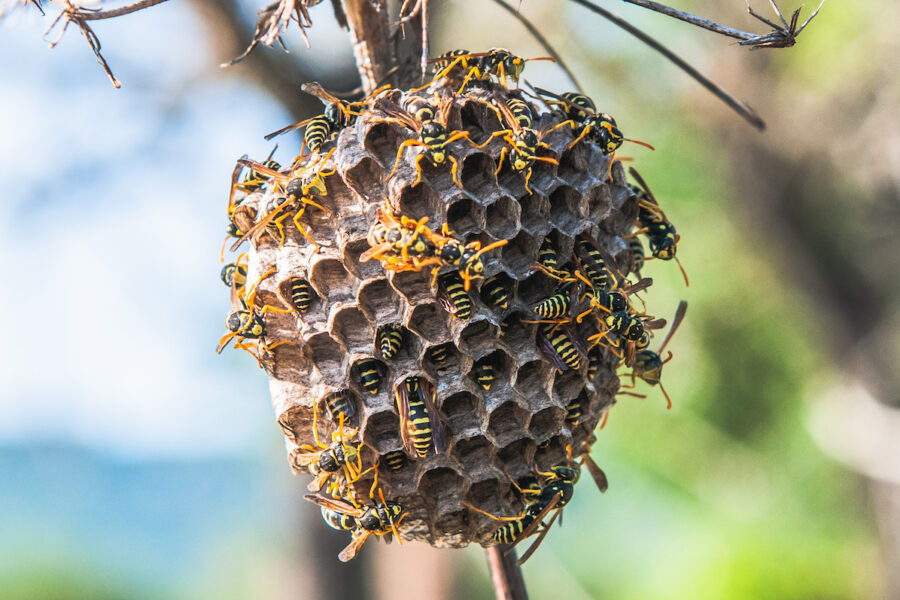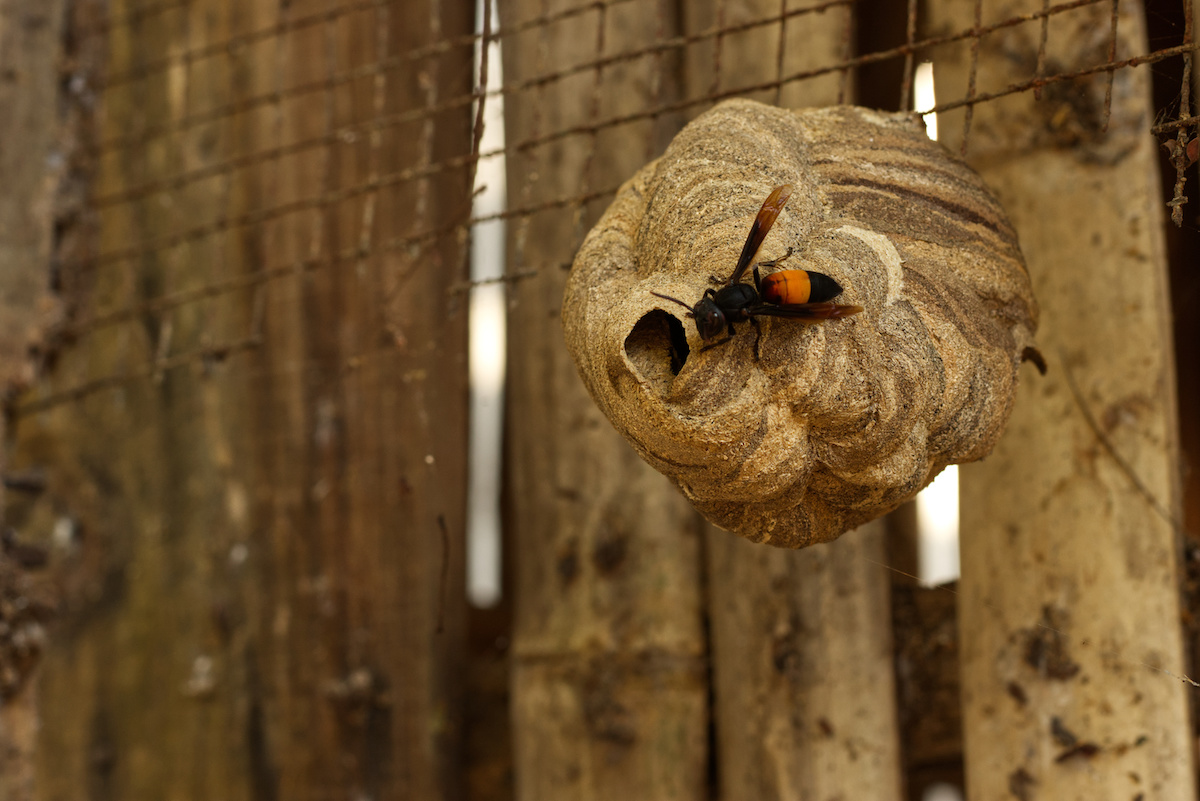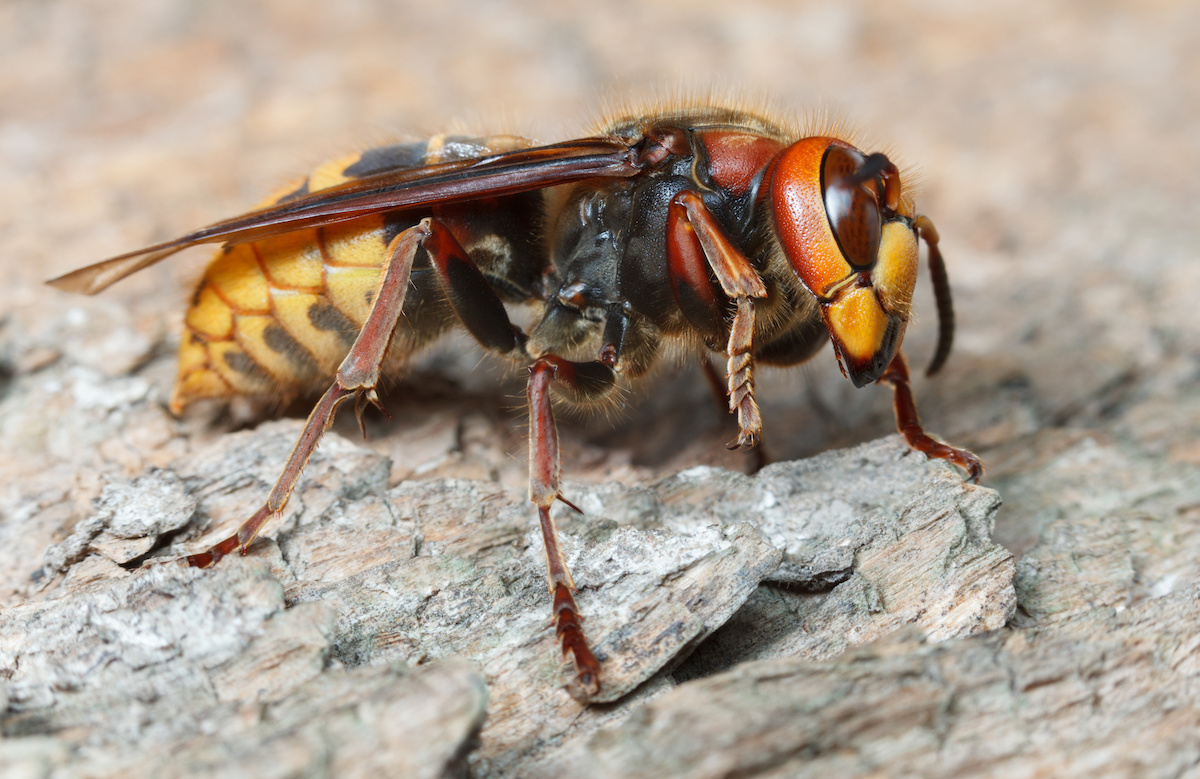
If you’ve ever spotted a buzzing insect with a slim, segmented body and a potentially painful sting, you may have wondered whether it was a hornet or a wasp. While these insects share many similarities, they are not the same, and understanding their differences can be vital for protecting your home and family.
At James River Pest Solutions, we know how confusing and sometimes frightening it can be to encounter hornets or wasps. That’s why we’ve put together this guide to help you identify, understand, and manage these pests more effectively.
Hornets and Wasps: What’s the Difference?
Hornets are a specific type of wasp, but not all wasps are hornets. The primary differences between the two lie in their physical characteristics, nesting habits, and behavior.
1. Physical Differences
Being able to identify whether you’re dealing with a hornet or a wasp starts with recognizing their physical traits:
- Hornets
- Larger than most wasps, typically measuring 1.25 to 2 inches long.
- Robust, rounded bodies.
- Dull coloration, often black and white or brown with yellow markings.
- Less aggressive in appearance but more intimidating due to their size.
- Wasps
- Smaller, ranging from 0.5 to 1 inch long.
- Slender, segmented bodies with a narrow waist.
- Bright colors, often yellow and black (as seen in yellow jackets).
- Sleeker and more agile in movement.

2. Nesting Habits
Hornets and wasps also differ in where and how they build their nests.
- Hornet Nests
- Typically found in high locations such as tree branches, under eaves, or on tall structures.
- Made of a paper-like material created from chewed wood fibers mixed with saliva.
- Large, football-shaped nests with a smooth exterior.
- Wasp Nests
- Can be found in a variety of places, including on walls, under porches, in attics, or even underground.
- Made of a similar paper-like material but often appear smaller and more open (like an umbrella).
- Some species, such as mud daubers, use mud to construct their nests.
3. Behavior and Aggression
When it comes to temperament, there are noticeable behavioral differences between hornets and wasps:
- Hornets
- Generally less aggressive unless their nest is threatened.
- Their stings are more painful due to their larger size and venom potency.
- Primarily feed on other insects, making them beneficial for pest control in moderation.
- Wasps
- More aggressive, especially species like yellow jackets.
- Known to sting multiple times without provocation, particularly near food sources.
- Feed on sugary substances and protein, which is why they are often found near outdoor dining areas.
Why Do Hornets and Wasps Pose a Problem?
While hornets and wasps play important roles in the ecosystem—pollinating plants and controlling other insect populations—they can pose risks to homeowners:
- Stings
Both insects can sting multiple times, which is not only painful but also dangerous for individuals allergic to their venom. - Nesting in Residential Areas
Nests located near doorways, gardens, or recreational spaces increase the likelihood of human-insect encounters. - Aggressive Behavior
Wasps, in particular, are known for their unprovoked aggression, creating additional risks during outdoor activities.
How to Identify an Infestation
Understanding the signs of a hornet or wasp infestation can help you act quickly:
- Visual Sightings
Frequent sightings of hornets or wasps near your home may indicate a nearby nest. - Noise
Buzzing sounds around walls, eaves, or trees often signal the presence of a nest. - Increased Activity
Swarms or frequent fly-bys around garbage cans, outdoor food, or sugary drinks suggest wasp activity.
Tips for Managing Hornets and Wasps
While hornets and wasps are essential to the environment, their proximity to humans can be a problem. Here’s how you can manage them safely:
1. Preventing Nest Formation
- Regularly inspect your property for early signs of nesting, especially in the spring and summer.
- Seal cracks and crevices in walls, siding, and roofs where wasps might enter.
- Keep trash cans sealed and clean to avoid attracting wasps searching for food.
2. Removing Food Sources
- Avoid leaving sugary foods or drinks outdoors.
- Pick up fallen fruit from trees promptly.
- Use tightly sealed containers for outdoor picnics or barbecues.
3. Natural Deterrents
- Plant wasp-repelling herbs like mint, thyme, and eucalyptus around outdoor spaces.
- Use decoy wasp nests to deter new colonies from forming nearby.
4. Professional Help
If you find an active nest, do not attempt to remove it on your own. Disturbing a nest can provoke a swarm and result in multiple stings. Instead, call a professional pest control service like James River Pest Solutions for safe and effective removal.

Hornets vs. Wasps: Which One Do You Have?
If you’re unsure whether you’re dealing with hornets or wasps, then here are some quick identifiers:
- Behavior: Are they flying aggressively around food? Likely wasps. Are they larger and primarily hunting insects? Likely hornets.
- Nest Location: Is the nest high up and enclosed? Hornets. Lower to the ground and open? Wasps.
Proper identification is essential for choosing the right control methods and understanding the level of risk.
Why Choose James River Pest Solutions?
At James River Pest Solutions, we specialize in safe and efficient pest control services tailored to your needs. Here’s why homeowners trust us with hornet and wasp issues:
- Experienced Technicians: Our team is trained to handle all types of stinging insects, ensuring safe and effective nest removal.
- Eco-Friendly Solutions: We use environmentally responsible methods to protect your home and the surrounding ecosystem.
- Preventative Measures: Beyond removal, we help you implement strategies to prevent future infestations.
Understanding the key differences between wasps and hornets can help you manage these insects more effectively and protect your home and family. While both play vital roles in nature, their presence near residential areas can pose risks that require careful management.
If you’re facing a hornet or wasp issue, don’t wait for it to escalate. Contact James River Pest Solutions for professional, reliable pest control services. We’re here to ensure your home remains a safe and comfortable place, free from stinging insect threats.
Reach out to us today to schedule an inspection or consultation!